Maracaibo, the beloved land of the Sun, a small paradise where everyone’s brothers, if I may paraphrase a famous and iconic song.
One does not have control over the circumstances of one’s own birth. We do not get to choose where we are born at, but for Zulians such as myself, pride over our birthplace and its ‘very noble and loyal’ capital, is quasi-mandatory, however flawed Zulia may be.
We speak our own variation of the Spanish language; we’re we vulgar, loud, unruly, and obese as it gets. Yet, despite our perceived ‘uncouthness’ and lack of refinement, we’re very friendly and respectful of our families, religion, and traditions, and would do anything to fight for our land and its people. We also have very autochthonous peculiarities, from our unique cuisine dishes to our beloved Gaitas, which fill Venezuelans’ hearts with joy during the Christmas festivities—or remind us of our mediocre politicians and our poor choices when it comes to politics.
Even though I am a proud Zulian, I’ve lived far more years out of it than within its warm embrace, that’s a fact that probably doesn’t help me much with regards to that personal feeling of always feeling out of place or at the fringes of something that has permeated all throughout my life, and my constant desire to be part of something—which goes hand in hand with my eternal struggle of finding my own place, as not even in my birthplace I could consider to be fully part of Zulia’s culture.
The Maracaibo that I cherish so much is no more. Over the past two decades of Bolivarian and Socialist Revolution, the city has turned into a chaotic mess, destroyed, and nearly ruined. If Caracas has been shielded from the blunt trauma of the nation’s collapse, then Maracaibo is a polar opposite, it has received it in full force.
What we used to call a little paradise has now become the maximum expression of the collapse of Socialist Venezuela. A city where constant blackouts are the norm, with a nearly destroyed power grid and strict power rationing schedules—a no man’s land in terms of law and justice, flung to the precipice of oblivion.
Maracaibo, the one that I fondly remember, is a peaceful city, it is the ancestral birthplace of my mother’s family, where my grandmother, who was a humble yet hard working nurse, raised all six of her children from nothing, where they flourished despite being born in poverty, and where at some point they became relatively well known and held in high regard—until internal strife drove them all apart.
It boasts a rich, picturesque, and unique history of its own, hell, it even got raided by pirates at some point of its past. Maracaibo used to be a pioneering city in Venezuela, the first to have public lightning (ironic, given how destroyed its power grid is now). It’s maritime port connected it to the world in a time where everything was far less globalized, a time before the internet and everything that came with it.
Maracaibo and Zulians are so culturally different from the rest of the country, to the point that we should’ve been our own Nation—a 200+ year old secession dream that you could classify as a meme (unless…)
Truth be told, we never wanted to be part of this mess, and we fought till the bitter end, we simply got dragged along the way.
In light of all that has transpired over this chaotic 2020, and all the pile of mental woes and burdens that I’ve been carrying on my mind over the past years, I can’t help but feel a deep sense of nostalgia for those great years, and for my birthplace — to look back at a simpler time of my life, even if I may end up committing the mistake of drowning in what ifs and what could’ve beens.
What follows is a very personal account of the two short periods of my life where I lived in the best city of Venezuela.
My birth and early years in Maracaibo
I was born in a small clinic in Bella Vista. I remember as much from those years as one is capable of remembering the first years of your life: not much.
I don’t remember the place my parents used to live at when I was born, but I do remember the house that we moved to, one that, if memory serves me well, used to belong to my father’s family. I sure had some shenanigans there, I was extremely frenetic and chaotic, antics that left me a small scar on the back of my head—I got a bit more chill after that night.
I remember my parent’s two dogs: Golfo (The Latin American localization name for the Tramp in Disney’s ‘Lady and the Tramp’) and Rifocina (named after a medicine spray), my uncle doing some mechanical work, and a few tids and pieces of mischief, such as me flushing the toilet when someone was taking a shower so that whoever was taking the shower would get a spicy hot water surprise.
There are other fragments of my memory that still persist, such as my Grandmother signing me songs about a conversation between a frog and a flat-assed toad, and a song about San Benito (Benedict the Moor), I still sing and remember these with a smile on my face. By the time I was four I was able to read and write, I do remember walking to a school, it’s green fence, and one incident where I couldn’t open a juice.
Overall, I have great but faint memories of those days. The one bad memory I have is from the time my mother had a Preeclampsia that culminated in a miscarriage. For reasons that I don’t know (never asked), my parents decided to move to Punto Fijo, home of my father’s family.
At the time I didn’t know that those were some pretty rough years for my mom. The inherent naivety of my infancy blinded me from the racism and scorn that my mother was subject to. There was only one good and pure thing to come out of Punto Fijo, my brother, Christopher.
That is a tale for another time, for sure. Long story short, my mother had enough and decided to leave. We did a few trips back and forth between Punto Fijo and Maracaibo, the one I do remember the most was when I got my tonsils removed.
Sometime after July of 1996 my mother applied for a job at the newly built Military Hospital of Maracaibo, and you can be damn sure she got it. So the three of us left Punto Fijo, and returned to where we were always meant to be, Maracaibo.
The best years of my life.
We arrived at my grandmother’s apartment with nothing but our luggage and my Super Nintendo in hand. Sure, we didn’t have much space and barely anything beyond our clothes, sleeping on the same bed in our uncle’s room and all that, but we were among our own, and most importantly, my mother was once again with her family, that was what mattered the most.
Unlike Punto Fijo, which is a very small town, Maracaibo is a full fledged city, yet, life was much simpler back then. You could walk to any plaza, go for a stroll late at night, and just generally go outside without fear of facing crime or anything.
My grandmother’s place was right in front of the once famous but now extinct Roxy theater, where I saw “Jingle all the Way” on our first Christmas there. It was also within a walking distance of the Plaza de la República, that’s where I learned how to use rollerblades.
Man, what can I tell you, it was a different time, people really living the moment (unironically), with roller skates, skating, having a good time, no phones, no internet, nada.
Going from the then underdeveloped Punto Fijo to a full fledged City like Maracaibo had its bit of an initial shock, but I rapidly got used to it. My uncle used to drive me and my cousins towards his favorite Hot Dog Stand: Papa Luis III. Nothing beat the thrill of going on the back of his truck, feeling the breeze after eating an insanely good hot dog and a Coke or Pepsi.
The tequeños, the mandocas, the pastelitos, the patacones — there’s a reason most Zulians are a bit on the chubby side, with food as good as ours, how can you blame us for putting up some weight.
My mother always put our studies first and foremost, and keeping me in a good school, no matter the cost, was paramount for her. Back in Punto Fijo, I was enrolled in the John XXIII Marist School from 3rd grade up until a few weeks of 4th grade. It was the same school my father and his brothers had gone to, for reasons that I don’t know, I did 1st and 2nd grade in a different school.
I got transferred to the Maracaibo Marist School: Our Lady of Chiquinquirá. My mom had to take great lengths to be able to afford it, I was not appreciative of that before, but I am now.
The school was much larger in size, I was now sharing a classroom with 41 other kids that I did not know, all older than me, and yet, they all spoke with the same accent as I did. Unlike the other (several) times where we had to move and thus switch schools, I found it very easy to make new friends on this one. I studied hard, played football (soccer, for you American friends) in a somewhat acceptable but still deficient capacity. I was able to talk with other kids on other stuff, like Saint Seiya, Dragon Ball, video games, it was great.
Since my mom was busy at work, my uncle was the one that drove me to school, whenever he was able to he’d buy me a snack before heading home I don’t often mention this fact in public, but he suffered from Neurofibromatosis (don’t Google that), and from him I learned not to judge people because of their appearance.
Our first Christmas back in Maracaibo was a very modest one. The country was not perfect before, but it was in a much better state than today, this allowed my mother to get us some gifts, I got that very rad Construx Space Shuttle that I’d been wanting for so long.
1997
1997 was the year when my mother started to pull us up, and we slowly began to have more normalcy in our lives. It was also the time when I talked to the first love of my life: Maria Antonieta.
She went to school with me, and she lived not too far from my grandmother’s place—in fact, you could see her apartment building at a distance from my grandmother’s balcony. While I am the son of a Venezuelan and an Italian migrant, she was the daughter of Arab migrants (I don’t remember the exact country). Suffice to say, her mom cooked some great stuff.
The last time I talked to her was back in 1999, I hope she’s managed to live a great life, better than the one I’ve had. She deserved that much and more.
My mother’s side of my family is not perfect, but it’s better than most, unfortunately, when together, my aunts can cause quite the drama, the only one that remains alive still does to this day.
I don’t know exactly why they fought, but the end result was my mother taking our things and leaving for a hotel that she could barely afford. My dad happened to be visiting over that weekend, so I don’t know if that had anything to do, it probably did.
That weekend was the first time I saw her cry since she had that miscarriage. She simply told me that everything would be alright.
My mom’s family eventually made peace with her, and we were back at my grandmother’s place after a few days. Space limitations were still a thing, but I was happy with having a little corner to play with my toys, and having more than enough time to watch TV. From Reboot to Power Rangers Zeo, Johnny Quest, the classic Cartoon Network shows (Dexter, Cow & Chicken, Johnny Bravo, etc), Fox Kids, and even some local shows, a simple, but calm life for a then 9 year old me.
Blackouts aren’t necessarily a new thing in this country, they’ve simply become inhumanly worse under this regime. Unlike Punto Fijo, which had sporadic blackouts here and there, Maracaibo never had to suffer from them—except one time that I can recall. Water? Yeah, that was kinda spotty back then as well.
I did my first communion in May of 1997, and while the other kids were taken to fancy restaurants, or received some juicy gifts, mine was simpler but much better: we went to a local joint for some Pastelitos, Mandocas, and Empanadas.
Not wanting a repeat of what had happened earlier that year, my mom, while not having much money, started to look for a place for us to live. She scouted plenty of apartments and houses for rent, some smaller, some larger, some great ones, but all either out of her budget, or the deals fell apart for one reason or another. I suppose that it was rather disheartening for my mother.
Her search continued to be near fruitless, until a near-miracle occurred. An elderly couple was renting a very huge penthouse, and the fee was affordable for us. That was it, that was the place, so we moved to it.
It was hella spacious, and it being on a 15th floor and relatively close to the shores of Lake Maracaibo gave it one hell of a breeze in an otherwise hot city. I had my own room — with its own balcony to boot, and my own bathroom as well. To this day, I still have dreams about that place, because nothing has ever compared to it. I would live out my wildest fantasies alone in that room, fashioning heroic costumes and capes from towels to sheets, making swords out of plastic tubes and tape. If you’ve happened to read Sword of the Nation’s Public Preview — that’s where much of the character Axel Ingram comes from.
At first we didn’t have much when it came to furniture, to the point that we had to use a chair as our TV’s table. Over time, my mom’s financial situation improved, she got a raise with a retroactive bonus that allowed her to get a bed, another TV, and even a brand new Nintendo 64 for me as a reward for having attained good grades.
After I was done with 4th grade I accompanied my grandmother to a trip to Caracas for a few days, during which my brother lay waste to my room. He pushed and dropped my TV to the floor, scribbled on the walls, and trashed some of my toys. The TV did suffer some major damage, but the screen was intact, so it got repaired — to a certain extent.
Eventually, my dad sent our old furniture from Punto Fijo to Maracaibo, and I got some of my old toys back, which, coupled with the Saint Seiya ones in my possession, made for some amazing adventures. He even surprised me by sending his then old computer for me, an old Pentium 166mhz 1gb HDD and 8mb RAM banged up set.
This great streak of our life situation continued to improve as I entered 5th grade. I had been going to my friends houses for homework and video games for about a year now, but now I was able to host them as well.
Maracaibo had a sort of boom phase during that time, brand new stores were opened, new fast food chains set up their footholds, such as Wendy’s. From time to time I’d get to visit and glance over my uncle’s basketball team, get some freebies like shirts and old uniforms, and enjoy some free tickets here and there.
Now that we had some normalcy in our lives, my mom resumed some old hobbies of her, like knitting, and retook her nascent hobby of painting ceramic bisque figures. I’d often tag along with her and learn a new technique or two in the process, like ‘dry brushing’ and cracking eggshells to make interesting textures.
I’m left handed and I’ve always been clumsy with my hands, so she’d help me paint the most delicate parts of my figures, such as the eyes. There are still some of her own works in my possession, sadly, many of them have been lost with time, either damaged when we had to move to a new place, or simply misplaced.
This hobby of hers spilled over to my grandma and some other members of my family — it was a healthy, sane way of us doing an activity together as a family, her family is complicated, for the lack of a better word, so those days of me painting stuff with my mom, grandma, and cousins are days that I fondly cherish. I started having vision problems and got diagnosed with myopia towards the end of ‘97 as well.
Our life was as normal as it could get during this period. We’d often take some night trips to a fast food restaurant, do family activities like board games. My dad used to take the long road trip to Maracaibo whenever his work permitted it and spend the weekend with us, sometimes we’d pizza and movie nights — you have no idea how much I miss this.
That Christmas was vastly better than the previous year, although I do remember being rather angsty and withdrawn for whatever reason, that’s the earliest instance of me feeling ‘sad’ or depressed that I can remember.
1998
The majority of 1998 is what I consider the best year of my life. It started with a bang, my tenth birthday. There I was, little Christian Kaleb was now a 10 year old boy.
My mom took us to an arcade and food place, I can still taste the tequeños I had on my 10th birthday, and the games I played that afternoon, like The old Simpsons one, Teenage Mutant Ninja Turtles, Killer Instinct, and Mortal Kombat.
I continued to feel like a genuine part of my classroom, like I really belonged there, unlike the majority of my life, where I’ve struggled with this. We did a killer teamwork assignment on pollution that was followed by a short trip to Caracas, although I don’t remember the reason behind it. I hosted the final work/game night for this long assignment. One of the boys bought his copy of Mario Kart 64, and between that, my copy of Star Fox, my copy of Diddy Kong Racing, and some hotdogs and snacks made up for one of the best nights of my youth.
The rest of 5th grade was kind of a blur to me, but it was great. I kind of slipped a bit with my grades, especially during the weeks that my mom was busy at work cause I tended to skim on homework to play with my cousins. She had a serious talk with me once she found out about all the homework I hadn’t submitted, and I started to get my shit back together.
My brother was in pre-school by then, he had a great birthday as well, I had some of my friends come over that night. The 1998 World Cup was a great moment that coincided with one of the last two vacations I’ve had in my life. We took a trip to Margarita and spent a week or so.
That normal, sane, and healthy life we’ve had since the previous year continued throughout the year, everything was fantastic, a little problems here and there with health and money, but nothing that could not be solved.
It was time to begin 6th grade. This was the first and only time in my life that I was actually thrilled to start a new school year. Same old faces, but a new classroom and teacher, I still vividly remember that first day of 6th grade, down to that day’s afternoon, which I spent with my grandmother as I told her all about school, all the stuff that we would do over the year and whatnot.
I even began to participate in extracurricular activities that the school organized, from trips to another place, to afternoon Karate, group activities, nightly events and bingo evenings, as well as other sports. The possibilities were now endless, and everything looked and felt fantastic, unfortunately, it was not meant to be.
A few weeks after I started 6th grade, the owners of the apartment paid us a visit. I don’t recall exactly but they wanted (or needed) to sell the apartment, and thus could not continue renting it to us — don’t know for sure.
With a very narrow time window, and no more options available, we returned to our grandmother’s place, at least for a few weeks. I was bummed for sure, but what else could we do. Back to having limited space and no room of my own, sure I had my computer and all, but it was pretty cramped.
The 1998 Presidential Elections were upon us, and I remember all the chatter and cacophony around it, at least from the perspective of a then 10 year old. Fifth Republic, Bolivarian Revolution, I had no idea what any of that entailed, now I do. We also held our own 6th grade council elections, one that I lost to the popular girl in the classroom, Carla, it’s alright, she gave me a kiss some days later.
Hugo Chavez won his first election in 1998, and that marked the end of an era. While completely unrelated, his victory coincided with two new job ventures for my mother in Caracas, one in the hospital she would dedicate the last 16 years of her professional career to, and another one that was offered at a family member’s behest, which didn’t lasted long.
We didn’t have a place of our own anymore, so my mom, encouraged by her family, took the decision to move to Caracas towards the end of January, in search for better life conditions — and with that, my life in Maracaibo came to its end.
The tale of Caracas is a very long (and ongoing) one, and just like the one from Punto Fijo, it’s a tale for another time.
Sometime during mid-1999 my parents decided to spend a vacation, our last one as a family before their divorce. The road trip called for an overnight stay in Maracaibo. It was a school week so I wanted to visit my old classmates at school the next day, to have one real and proper goodbye and say farewells to my friends, my father said no, which really bummed me out.
We went back to Maracaibo to spend Christmas and New Years at our grandmother’s place. That was the last time my mom’s family was together as one, before a series of events split them apart over the next years.
Afterwards, I only went back to Maracaibo a total of three times: In 2006 along with my mom and brother when my mom gave a medical conference. In 2009 to visit one of our uncles while my mom gave him some medical attention to treat his diabetic neuropathy and frailing health, and in 2013 to visit him once more.
Each time the city felt much different to me, and each time I felt more like a stranger in a land that was not my own.
An Elegy for my Amaurot
More than twenty years have passed since those great days, nothing was ever the same. While things haven’t been all that bad, nothing has ever matched that which we had during those two years in Maracaibo.
I would give anything to go back to those days and do things differently, to prevent us from moving to Caracas and thus, having a different outcome — but we know that’s impossible, so perhaps, by writing these lines, I will get to preserve some of that Maracaibo in others.
My mother and her family’s decision to move to Caracas in 1999 to pursue a better life that never quite came to pass set in motion a long and non stop series of events with lasting consequences.
I stopped being the outgoing child that I was during those years, and became a social outcast, began to struggle with social situations and making new friends, never went to another friend’s house, and became far more introverted as time went on. My brother had his own struggles due to his condition, and long gone were the healthy family moments with my mom’s side of the family, now obfuscated by endless bickering and petty drama.
I made so many personal mistakes during my teenage years when it came to my studies, neglected my education, flunked my computer science career, and made even more personal screw ups, the end result of all that is that you have me here, writing this lengthy post. If I may paraphrase a certain video game villain, is that I am now a monument to all my sins (mistakes, in this case).
Had we stayed in Maracaibo then perhaps I would’ve taken a different path in life (Medicine maybe), perhaps I wouldn’t have made so many mistakes, and neglected my studies so hard — the consequences of it are something that I am still paying a penance for.
I don’t know what happened to those 40-something kids that I used to study with, I still have a list of their names from my First communion booklet, but searching for their names online is not something I’m particularly fond of doing nor am I interested in doing so. Like the first great love of my life, I hope that they all got to live great lives, they where the best classmates I could ever ask for.
To wrap this up, allow me to dork once more for a brief moment, and let me have this wild take: Maracaibo is my personal Amaurot.
The City that I was born at, the place where I lived the best years of my young life, is no more. And, much like the Amaurot of Emet-Selch, it exists only in my memory, fragmented and faded with time, but not completely forgotten.
I cannot recreate my personal Amaurot, but I can dream of it. The Maracaibo of today is a place that shouldn’t be, punished and bought to its knees by this regime and its sins.
Perhaps one day, when all of this political nightmare is but a distant memory, it’ll become once more that great place that I love so much. Maybe I’ll live long enough to see that, maybe not — if I’m fair and honest with you, I don’t have my hopes up.
I do not have the means to save Maracaibo, nor would I ever think of myself as some sort of saving prophet that will one day return to liberate and save my people — despite my jokes of a daring synthesis of Zulia and Neo Zeon: Neo Zulia, saying otherwise.
But for now, no matter what happens to me, or what road I walk in life over the next years, I will always treasure those brief years of normalcy that Maracaibo blessed me with. They’re a fundamental part of who I am, and they help me shape myself into the force of good that I aspire to be in the near future.
The feelings of that great life that I once had fill me with joy, but also with profound sadness and pain, it’s something I lost to bad choices and circumstances. I need to stop delving in the past, those great days are over, and I can’t live through them ever again, as painful as this is to me.
All I can hope for, all that I’m striving for, is to be able to build a new life for my brother and for myself, one that’s not just as good than those two years of my life — but better and everlasting.
That is why I am remembering those great years of my life in Maracaibo with these words and sharing them with you all, because that’s what I want for Christopher and I once more, and that’s what I have to keep fighting for.
From Zulia to the world, I hope to be able to say that with pride one day.
Until next time,
-Kal
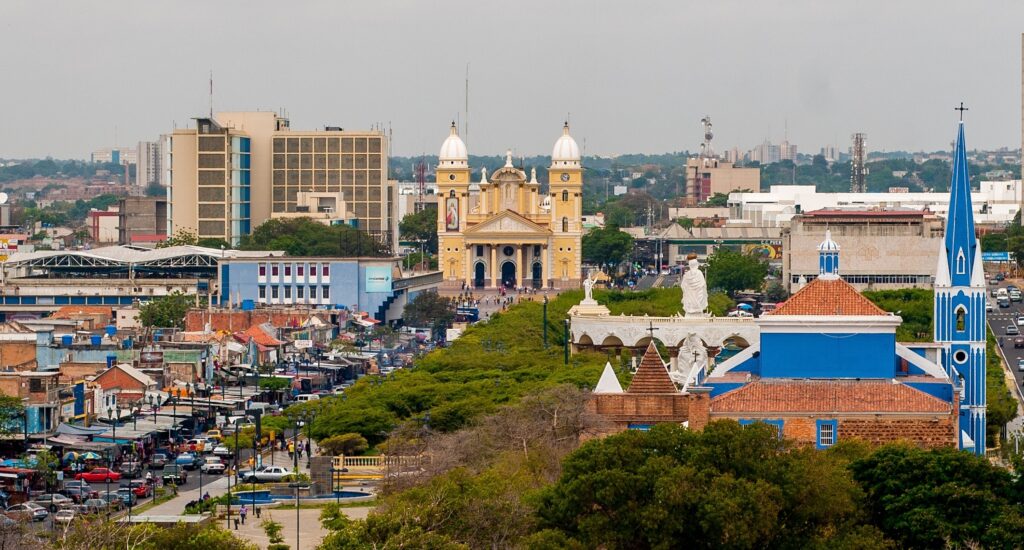
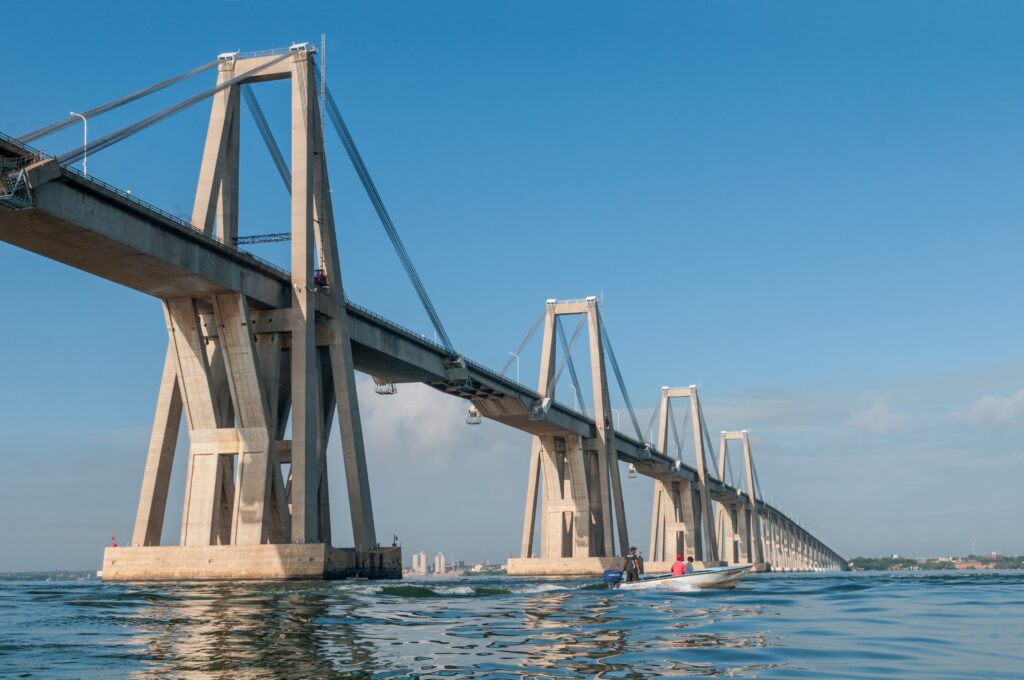
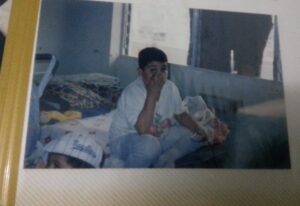
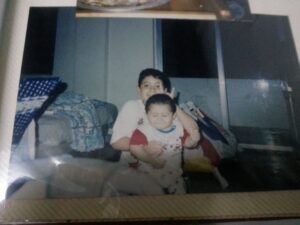
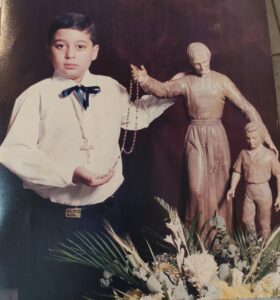
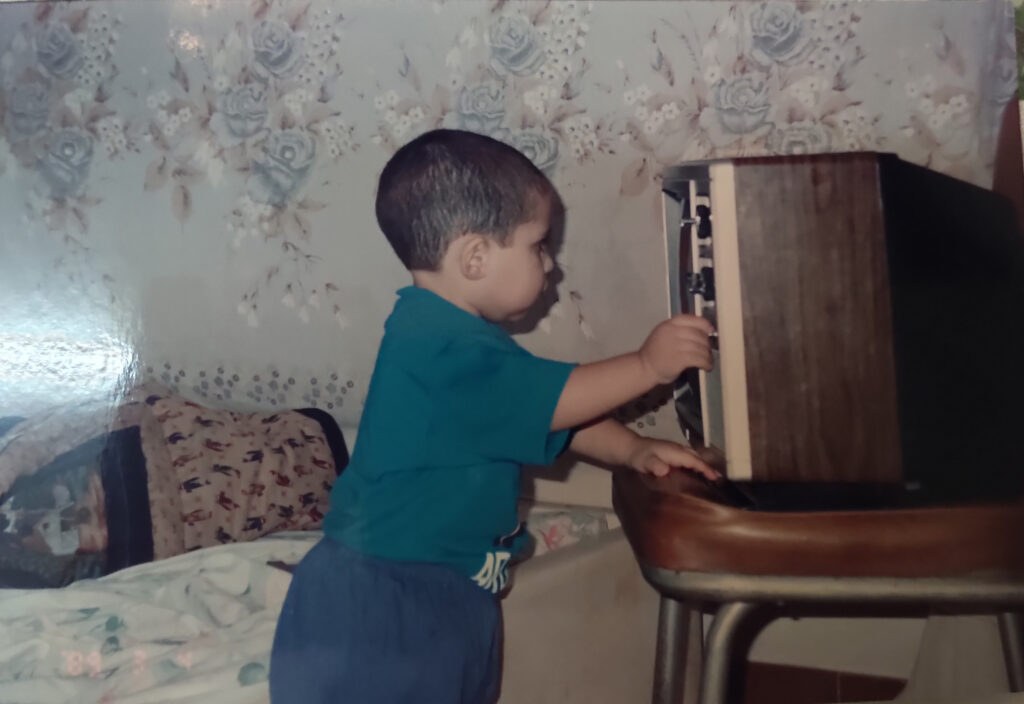
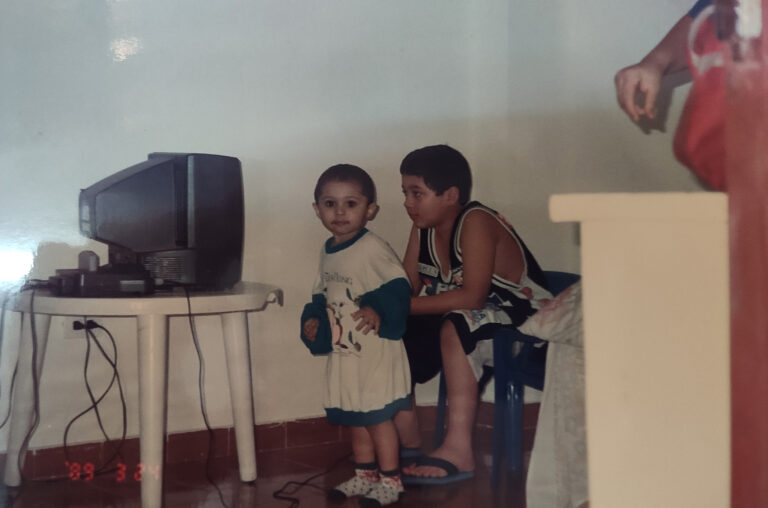
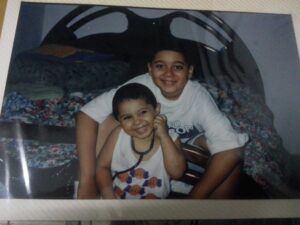
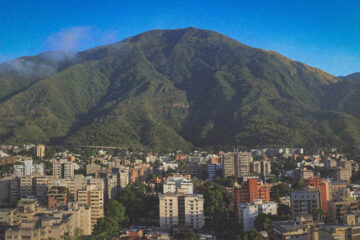
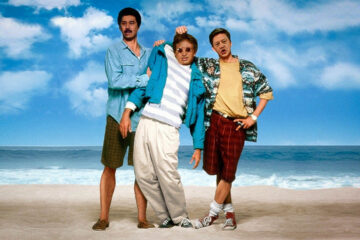

1 Comment
Tales from 8th grade II: Crash and burn | ckaleb[dot]com · May 28, 2021 at 7:56 am
[…] My mom, as overworked and tired as she was, was determined to restore as much of our lost normal life as possible, to build something that at least resembled the good brief years that we spent in Maracaibo. […]
Comments are closed.